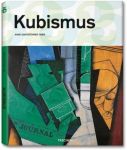"Says Shakespeare, who just now is much in fashion"
Stober:"Says Shakespeare, who just now
| Autor: | Mirco Stober |
|---|---|
| Verfügbarkeit: | Auf Lager. |
| Artikelnummer: | 2631016 |
| ISBN / EAN: | 9783989400115 |
Produktbeschreibung
This study focusses on Byron's largely disregarded career as a playwright and establishes Shakespeare as an important influence on his plays. This brings them closer to stage representa-tion although Byron himself claimed that his plays are unsuitable for the contemporary London stage and that Shakespeare, the dominant presence on said stage, is "the worst of models-though the most extraordinary of writers".
Following an introduction to the Romantic stage and a brief survey of Shakespeare's status in the Romantic age and on its stage, this study analyses examples of Byron's engagement with the London stage during the years 1812-16 - his "Address, Spoken at the Opening of Drury Lane Theatre", his friendship with Edmund Kean, as well as his time on the Drury Lane Subcommit-tee - showing that Byron is a clear advocate for the representation of Shakespeare's plays on the contemporary stage. Next this study reconciles Shakespeare with other elements of Byron's poetics such as neoclassicism or the Gothic before finally demonstrating that five of Byron's plays - Manfred (1817), Marino Faliero (1821), Sardanapalus (1821), The Two Foscari (1821), and Werner (1822) - are heavily influenced by Shake-speare's plays and that this influence brings each play closer to representation on the contempo-rary stage, belying both of Byron's claims.
TABLE OF CONTENTS
Abbreviationsviii
1 Introduction1
2 Shakespeare on the Romantic Stage17
2.1 The Romantic Stage17
2.2 Shakespeare in the Romantic Age23
2.3 Shakespeare's Plays on the Romantic Stage30
3 Byron's Engagement with the Romantic Stage41
3.1 "Address, Spoken at the Opening of Drury Lane Theatre" (1812)41
3.2 Byron and Edmund Kean (1814)49
3.3 Byron on the Drury Lane Subcommittee (1815)54
4 Shakespeare in Byron's Plays60
4.1 Shakespeare in Byron's Poetics60
4.2 Manfred: A Dramatic Poem (1817)73
4.3 Marino Faliero, Doge of Venice: An Historical Tragedy (1821)97
4.4 Sardanapalus: A Tragedy (1821)135
4.5 The Two Foscari: An Historical Tragedy (1821)162
4.6 Werner: A Tragedy (1822)184
5 Conclusion203
6 Bibliography208
Following an introduction to the Romantic stage and a brief survey of Shakespeare's status in the Romantic age and on its stage, this study analyses examples of Byron's engagement with the London stage during the years 1812-16 - his "Address, Spoken at the Opening of Drury Lane Theatre", his friendship with Edmund Kean, as well as his time on the Drury Lane Subcommit-tee - showing that Byron is a clear advocate for the representation of Shakespeare's plays on the contemporary stage. Next this study reconciles Shakespeare with other elements of Byron's poetics such as neoclassicism or the Gothic before finally demonstrating that five of Byron's plays - Manfred (1817), Marino Faliero (1821), Sardanapalus (1821), The Two Foscari (1821), and Werner (1822) - are heavily influenced by Shake-speare's plays and that this influence brings each play closer to representation on the contempo-rary stage, belying both of Byron's claims.
TABLE OF CONTENTS
Abbreviationsviii
1 Introduction1
2 Shakespeare on the Romantic Stage17
2.1 The Romantic Stage17
2.2 Shakespeare in the Romantic Age23
2.3 Shakespeare's Plays on the Romantic Stage30
3 Byron's Engagement with the Romantic Stage41
3.1 "Address, Spoken at the Opening of Drury Lane Theatre" (1812)41
3.2 Byron and Edmund Kean (1814)49
3.3 Byron on the Drury Lane Subcommittee (1815)54
4 Shakespeare in Byron's Plays60
4.1 Shakespeare in Byron's Poetics60
4.2 Manfred: A Dramatic Poem (1817)73
4.3 Marino Faliero, Doge of Venice: An Historical Tragedy (1821)97
4.4 Sardanapalus: A Tragedy (1821)135
4.5 The Two Foscari: An Historical Tragedy (1821)162
4.6 Werner: A Tragedy (1822)184
5 Conclusion203
6 Bibliography208
Zusatzinformation
| Autor | Mirco Stober | Verlag | WVT Wissenschaftlicher Verlag Trier |
|---|---|---|---|
| ISBN / EAN | 9783989400115 | Bindung | Taschenbuch |
Weitere beliebte Produkte
-

Tiger fressen keine Yogis
Piper.05184 Timmerberg.Tiger <span>Als Taschenbuch gegenüber Hardcover 10,00 €</span>
-

-

Betriebsverfassungsrechtliches Beweisverwertungsverbot bei Nichtbeachtung des Mitbestimmungsrechts nach Paragraph 87 Abs. 1 Nr. 1 und Nr. 6 BetrVG
Kaltenmeier:Betriebsverfassungsrechtlic <span>Als Taschenbuch gegenüber Hardcover 39,90 €</span>




















